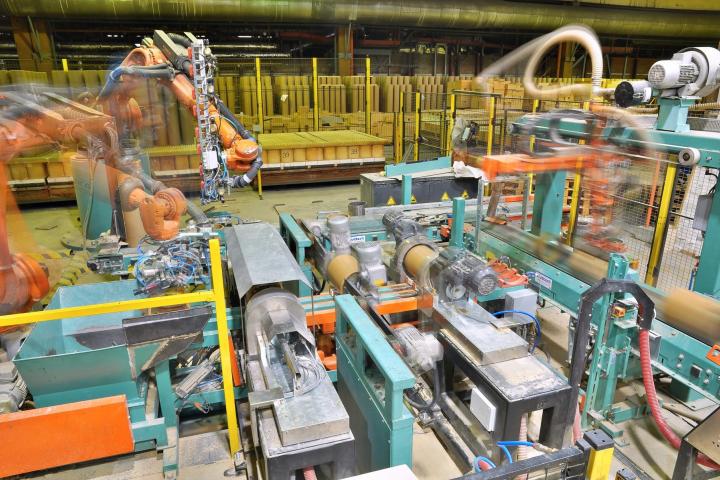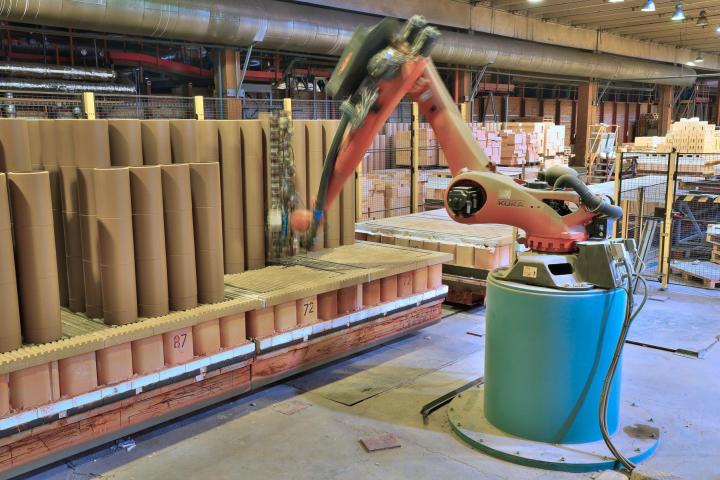With this evaluation, the SPD CR appreciates the first project of digitalization of a complex production process in P-D Refractories CZ a.s. in the sense of Industry 4.0. The initial conceptual design was already created in the form of a digital twin and is still being improved. At the same time, it has shown the way and served as a basis for the definition of the 4.0 strategy and the digitalization of other production processes. The whole project was also possible thanks to the high qualification and experience of the faculty's scientific and pedagogical team, which solved a specific requirement of an industrial company in an exemplary way and can inspire other companies to successful innovations.
The team from Faculty of Mechanical Engineering designed a complex automated technology including a robotic workplace for P-D Refractories CZ a.s., the largest manufacturer of refractory products and raw materials. The main result of the optimization of the existing technology in the sense of Industry 4.0 is increased labour productivity, a significant reduction in inconsistent production, a better working environment and the release of twelve employees for the development of other production processes. The implementation was supported by MIT projects FV10151 and TAČR FW01010048. Under the leadership of Ing. Libor Baránek, Ph.D., a team of the technological design group led by Ing. Jiří Kyncl, Ph.D. Ing. Martin Kyncl, Ing. Tomáš Kellner and Ing. Petr Syrový. "We spent a lot of time in the company because it was not just about changing the production line, but a multidisciplinary problem, from the natural raw material at the input to the process and its characterization using a range of sensors, through the individual extrusion production operations, endless band cutting, to in-line shape machining using laser scanners that were integrated into the production process to control and manage the entire line, all coupled with automatic handling of the natural material in its plastic state using manipulators for inter-operation handling, to robotic handling on the furnace cars. We wanted to create a comprehensive set of innovative solutions that will work as a whole to bring maximum effect to the company in the form of increased labour productivity, concrete savings in material and energy consumption to reduce the carbon footprint and overall environmental impact", says Jiří Kyncl.
It is also important for the faculty that students also participated in the team's work and two valuable theses were produced during the solution. Over the course of three years, they were involved in the analysis and design of the innovations. The students brought interesting proposals and solutions that were further subjected to feasibility studies. "The aim was to engage students in solving a specific problem in industry. The actual work was fun for the students, as they solved concrete problems in their work that would help practice, rather than just working with theoretical knowledge and having their work end up in a drawer," adds Petr Syrový. "Indeed. Students realise that their value on the labour market is increased by the quality of their thesis, which solves a specific problem of practice. So they willingly apply to participate in projects and engage in work with elation", confirms Martin Kyncl.

